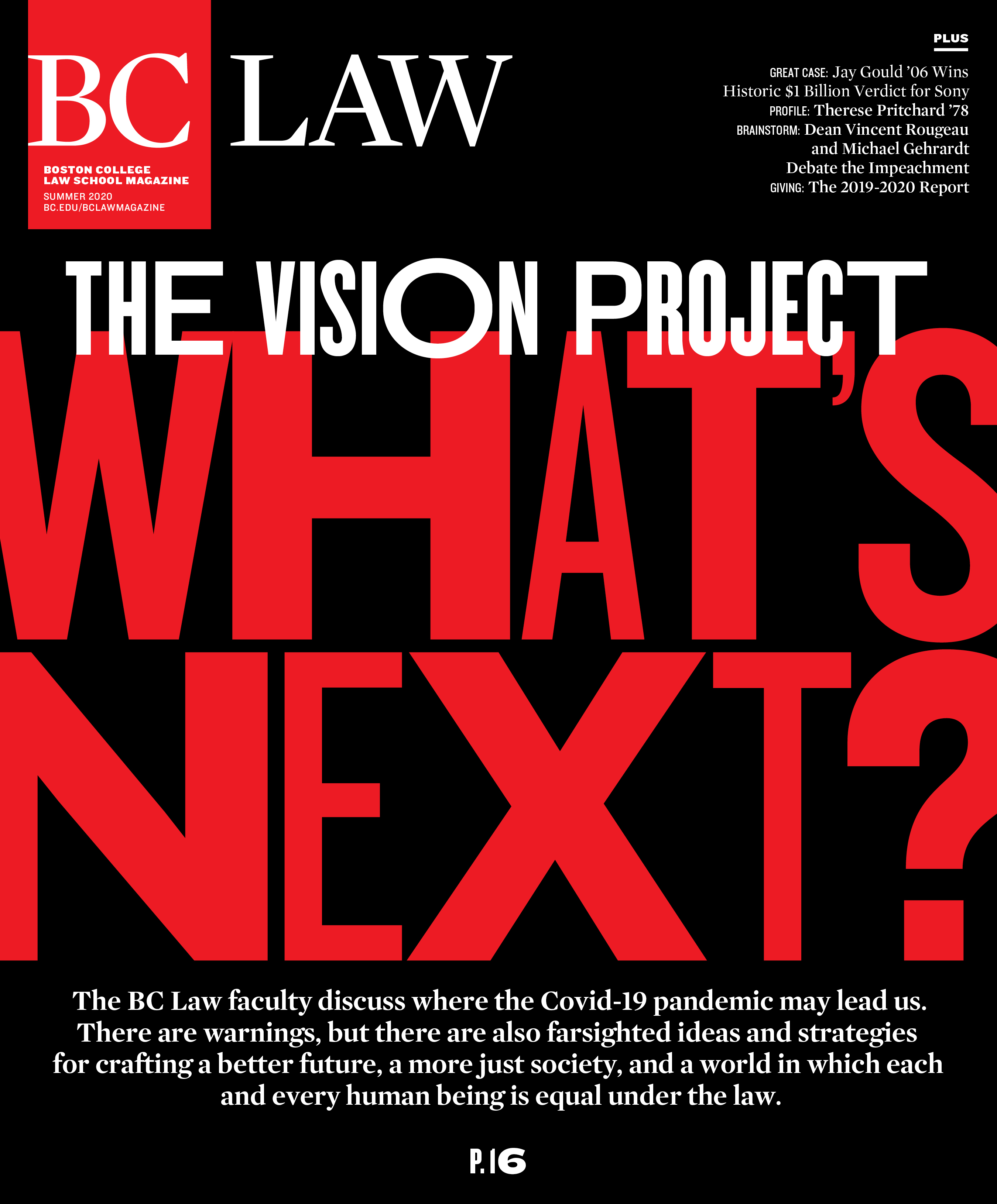
As the pandemic rages on, one thread that will likely run through conversations will be the role of taxation, says Associate Dean Of Faculty Diane Ring. How might we use the tax system to raise needed revenue, allocate tax burdens, incentivize responsible business behaviors, and support those facing hardship?
Ring argues that the tax system has historically been called upon to play each of these roles, and it can do so in the future. Already in this crisis, major federal legislative responses to the pandemic have been grounded in the tax system—from tax incentives and credits to help businesses keep on paying workers to stimulus checks for individuals delivered through the income tax system.
But the bigger and more challenging question, Ring contends, is whether we can reach collective understandings on the deep questions regarding our relationships to each other, to society, and to the world. That challenge must precede the work of the tax system. If and when we rise to meet it, the tax system will be there to help us, she says.

Professor James Repetti ’80 believes that this period of uncertainly is an opportune time to reexamine our tax structures and policies for solutions.
He begins with a bit of history. The 16th Amendment, ratified in 1913, authorized an income tax. For most of the time since, the US has had highly progressive tax rates, with the maximum rate sometimes as high as 94 percent. In the past thirty years, though, the maximum rate has decreased (it’s now 37 percent), he explains, primarily because of concerns that high tax rates stifle economic activity.
Yet, Repetti’s research also shows that a consensus exists among economists that taxes within the historical range of rates in the US have little or no impact on labor supply, and they cannot agree on whether progressive tax rates decrease or increase savings rates. Meanwhile, empirical research shows that inequality imposes measurable costs on the health, social well-being, and intergenerational mobility of our citizens, as well as on our democratic process.
Taken together, the clear harms arising from inequality and the uncertain harms arising from progressive tax rates strongly support giving equity at least equal weight with efficiency in formulating tax policy. But given the high level of inequality in the US and the currently low and flat tax rate structure, equity should be given more weight than efficiency at this time, Repetti concludes.
To read other pieces in this issue’s The Vision Project, click here.



